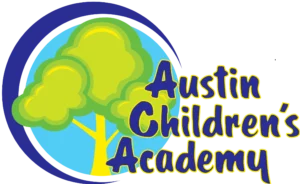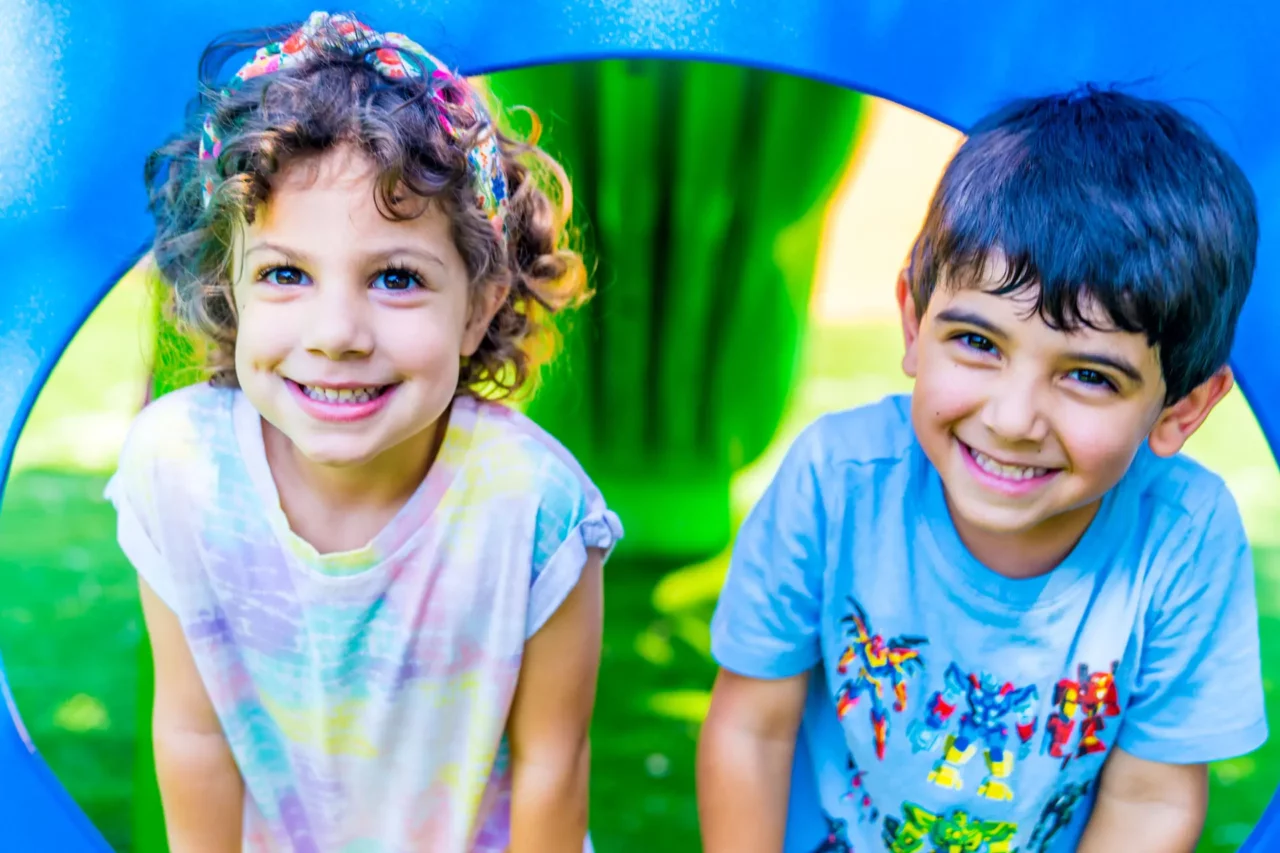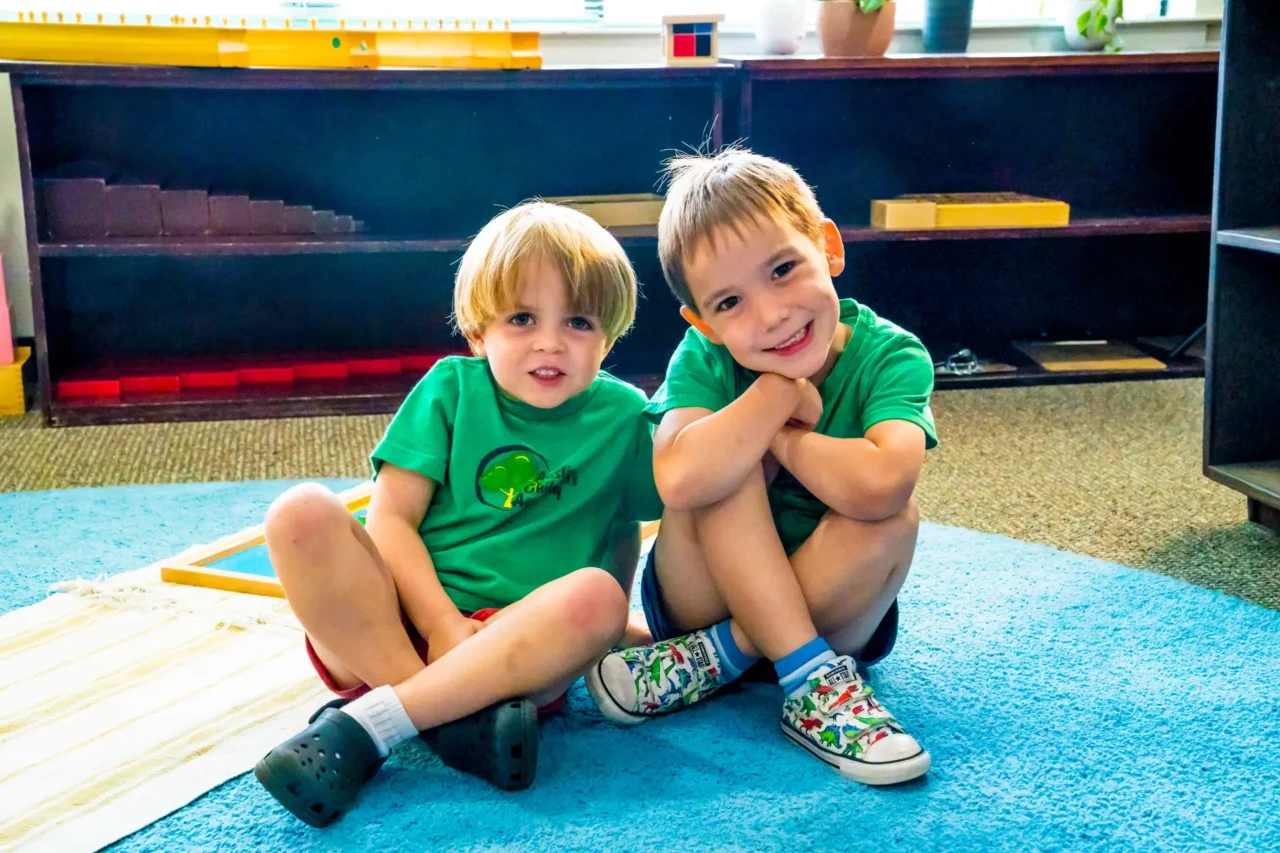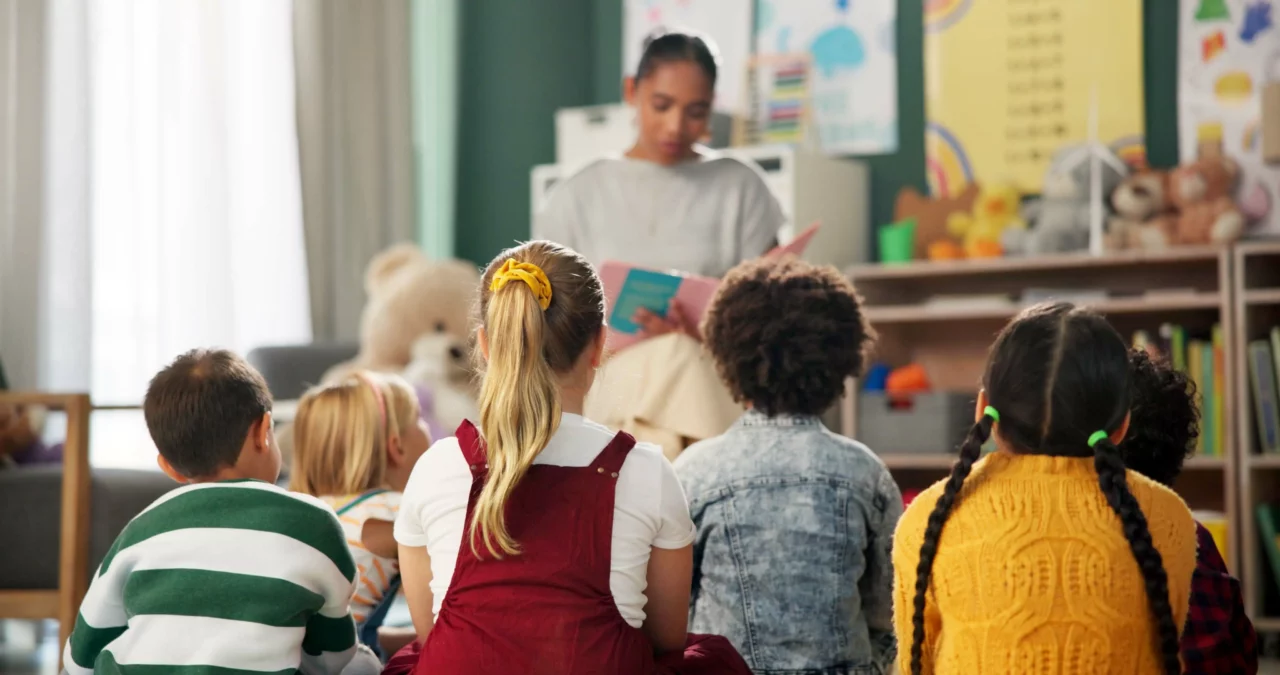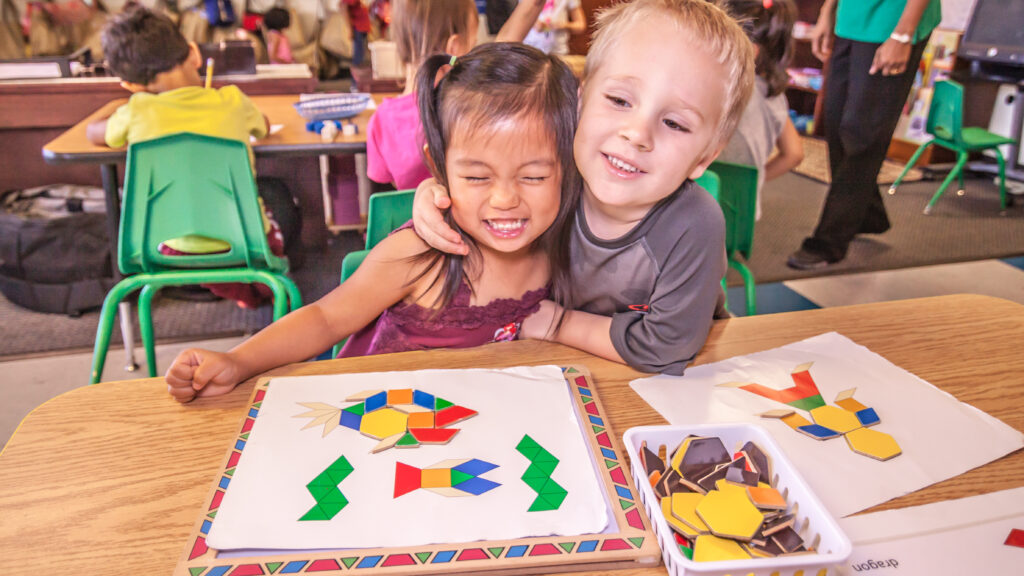
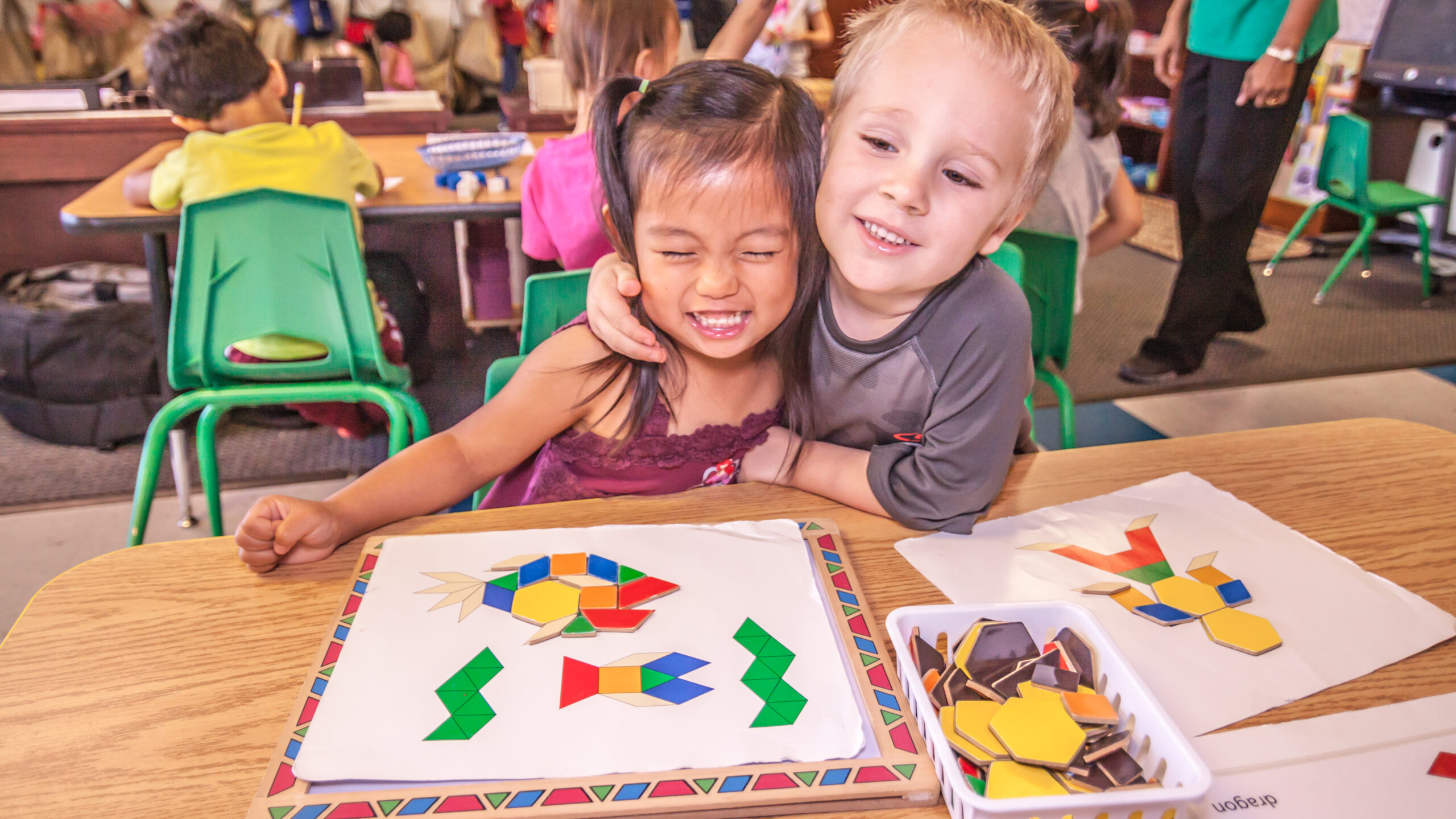
Now more than ever, kindergarten is focused on preparing children for elementary school, middle school, high school, and everyday life.
Learning in Kindergarten
A child’s kindergarten education primes their mind for elementary school. If you’re looking for a high-quality kindergarten program, you should look for programs that focus on the following:
- Physical Development
-
-
- Large motor skills and fine motor skills are important for kindergarteners to master. Large motor skills focus on the motion of the arms and legs, and fine motor skills are geared toward the hands and fingers. By developing these skills, children gain better control over their bodies. Large motor skills can be honed with outdoor activities and gym class, and fine motor skills can be honed with puzzles, drawing, and art class.
-
- Social Development
-
-
- How a child interacts with and relates to their peers is called social development. Kindergarten is where a child starts to learn these skills by putting them into practice. In kindergarten, a child learns to resolve conflicts, make friends, and work cooperatively with their peers.
-
- Emotional Development
-
-
- Self-regulating is important over the course of a school day, and doing so consists of a child managing their feelings. Teachers can help children work through their feelings by talking about them in order to effectively express what’s happening inside their heads.
-
- Language and Literacy
-
-
- Communication skills are refined in kindergarten through reading, writing, talking, and listening. Literacy is a critical skill, and because of this, heavy emphasis is placed on it in kindergarten.
-
- Thinking and Cognitive Skills
-
- In kindergarten, a child is encouraged to be curious, ask questions, make observations, investigate, and learn how to solve unique problems on their own.
Why Kindergarten?
The skills that a child learns in kindergarten are ones that they’ll carry with them throughout the rest of their academic career—and throughout the rest of their lives.
Autonomy is important for a child, and they get a big sense of it in kindergarten. For many children, the newfound independence has them looking forward to kindergarten every day. They enjoy feeling like a big kid!
Integrating school into your everyday routine and normalizing it is another great way to help your child look forward to kindergarten. Once they see it as a place where they can learn, grow, and spend quality time with their friends and teachers, they will realize it’s a safe (and fun) place, and they’ll begin to look forward to it.
Kindergarten also helps to develop the self-esteem of a growing child. They master new skills every day at school, and that accomplishment would make anyone feel good. In kindergarten, a child will feel confident about their skills and their capacity to learn, which will make them feel prepared for whatever might come next.
Children are also encouraged to be curious while in kindergarten. While curiosity comes naturally to a child, many children lack the focus or direction needed to apply their curiosity. Being in kindergarten helps them direct their curiosity toward a learning opportunity.
A Quality Kindergarten
There are quite a few ideas on what a good kindergarten program looks like, but there are a few basic requirements needed that qualify the program as something worthwhile. Here is what a high-quality kindergarten program needs:
- A kindergarten program should open your child’s mind and help them learn about the world, all the while giving them tools to organize the information that they’re encountering. It will also give them everything they need to solve problems on their own and with others, which then instills confidence, self-worth, and interest in school.
- There should be informal and formal activities—the latter led by teachers and the former initiated by students. With options presented, children can choose what feels right for them in the moment, whether that means working by themselves or in small groups.
- Large sit-down group activities should be minimized as much as possible. In lieu of these traditional lessons, a good kindergarten will concentrate on play-based, hands-on learning that takes place in small groups. To prepare for first grade, those groups can slowly get bigger as the year progresses.
- The love of reading should be encouraged with books, words, and children’s writing decorating the class.
Your Child in Kindergarten
Since every child is unique, they all approach kindergarten differently—as do parents. But a good kindergarten program will have kids looking forward to attending school each day, and that love of school will create a precedent for the rest of their academic career.
